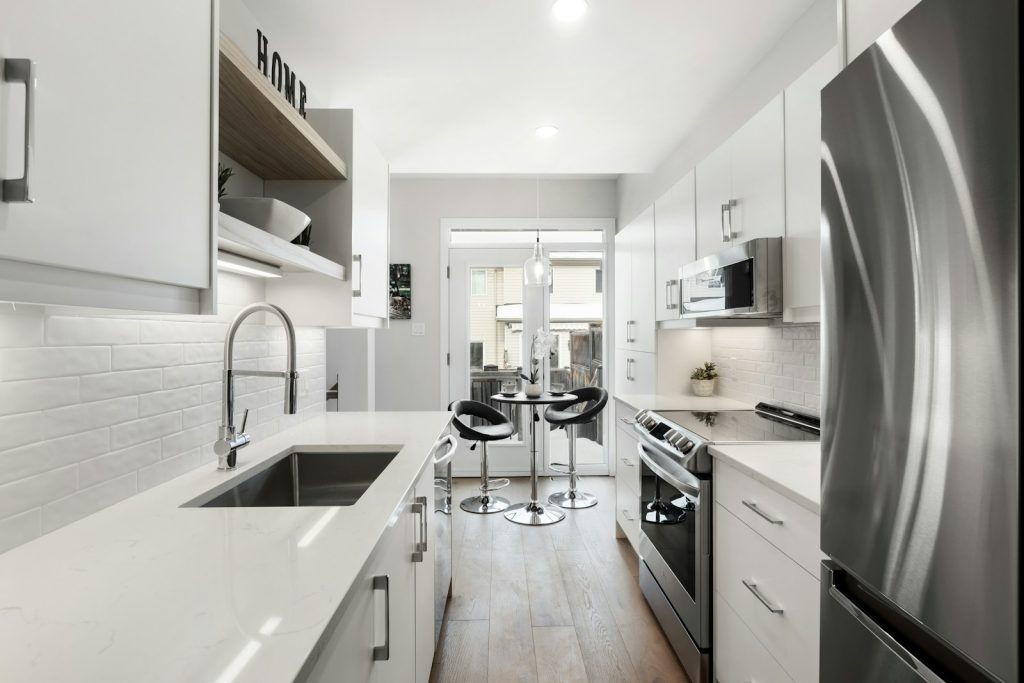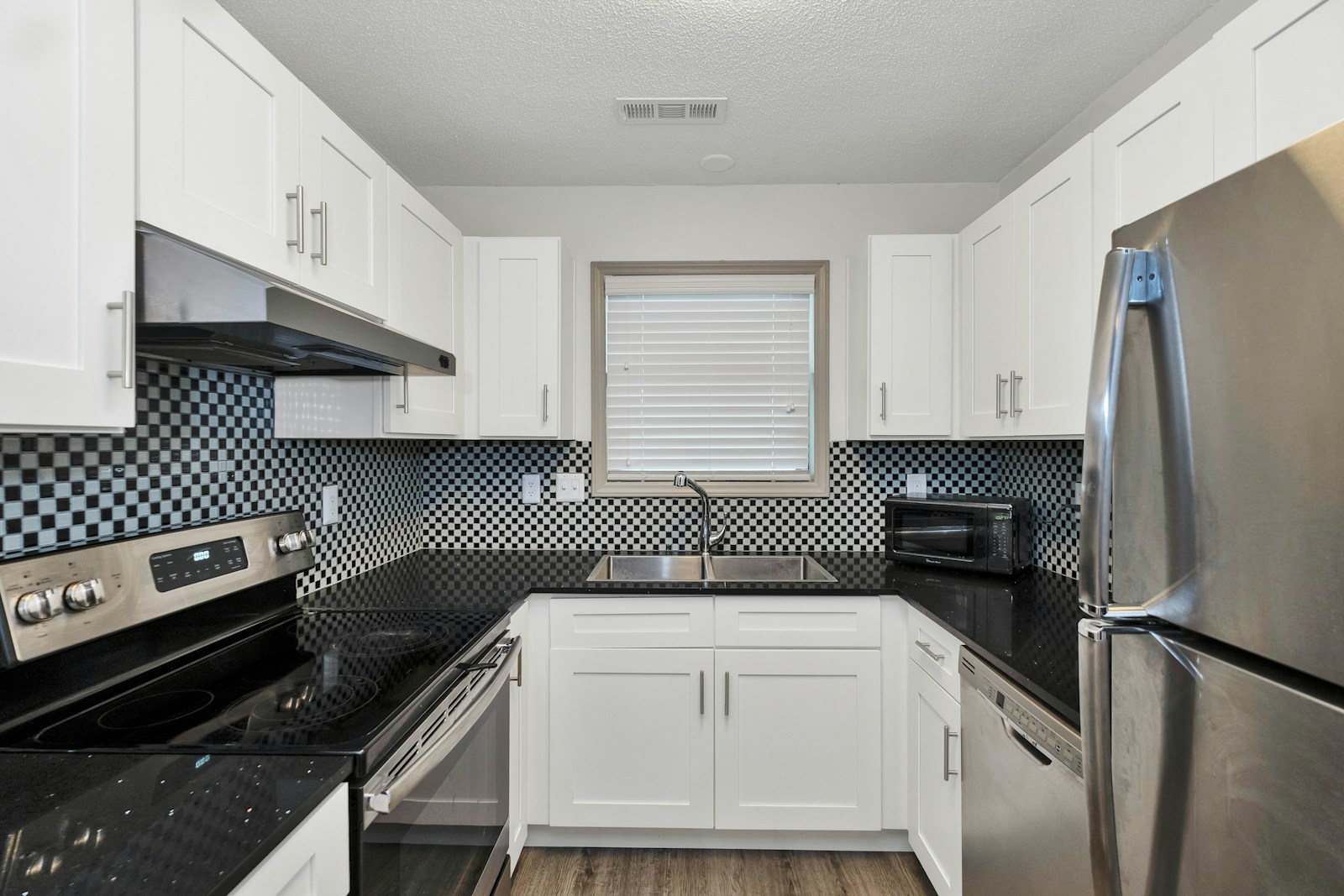When it comes to kitchen renovations, selecting the right countertop material is crucial for both aesthetics and functionality. Two popular options that often top homeowners’ lists are quartz and granite. Let’s explore the key differences between these materials to help you make an informed decision for your Florida home.
Appearance and Variety
Granite:
Granite countertops offer a natural, unique beauty that many homeowners love. Each slab is one-of-a-kind, featuring intricate patterns and color variations formed by nature. This natural stone comes in a wide range of colors and patterns, from subtle whites to bold blues and greens.
Quartz:
Quartz countertops, on the other hand, are engineered stone products made from natural quartz crystals combined with resins and pigments. This manufacturing process allows for a broader range of colors and patterns, including options that mimic natural stone. Quartz offers more consistent coloring and patterning, which can be ideal for achieving a specific design aesthetic.
Durability and Maintenance
Granite:
Granite is extremely durable and heat-resistant, making it an excellent choice for busy kitchens. However, it is porous and requires periodic sealing to prevent staining and bacterial growth.
Quartz:
Quartz countertops are non-porous, making them highly resistant to staining and bacterial growth. They don’t require sealing and are generally easier to maintain than granite. However, quartz is less heat-resistant than granite and may be damaged by very hot pots or pans.
Cost Considerations
The cost of both materials can vary widely depending on quality, rarity, and installation complexity. Generally, granite and quartz fall into similar price ranges, with some high-end options for both materials being more expensive.
Environmental Impact
Granite:
As a natural stone, granite is quarried from the earth, which can have environmental implications. However, it’s a durable material that can last for decades, reducing the need for replacement.
Quartz:
Quartz countertops are engineered products that use natural quartz combined with resins. While not entirely natural, the manufacturing process can be more controlled and potentially less environmentally impactful than quarrying.
Florida-Specific Considerations
In Florida’s humid climate, quartz’s non-porous nature may be particularly advantageous, as it resists moisture absorption and potential mold growth. However, granite’s heat resistance could be beneficial for outdoor kitchens, which are popular in Florida homes.
Making Your Decision
Ultimately, the choice between quartz and granite comes down to personal preference, lifestyle, and specific needs. Consider factors such as:
- Your design aesthetic
- How much maintenance you’re willing to do
- Your kitchen’s usage patterns
- Your budget
- The overall style of your Florida home
Both quartz and granite can make excellent countertop choices, offering beauty and durability to enhance your kitchen renovation.
At Total Home Design, we’re here to help you navigate this important decision and create the perfect kitchen for your Florida lifestyle.


